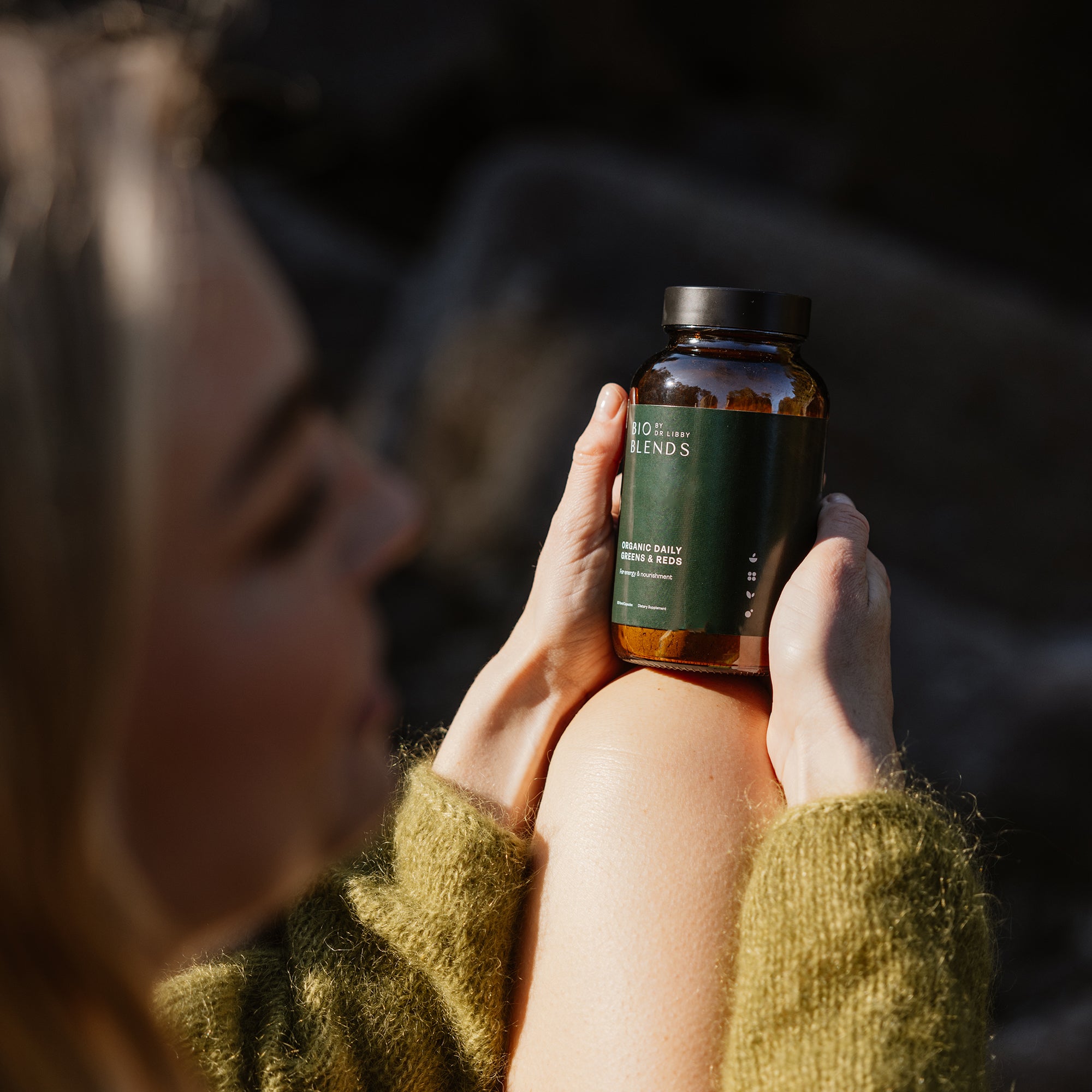
8 reasons why zinc is so important for women’s wellbeing
Zinc deficiency is incredibly common in today’s world, in fact, 1 in 3 people are zinc deficient.
And this is deeply concerning.
Zinc is involved in over 300 biochemical processes in the body. When we’re deficient in this important mineral, the body must choose which processes to forgo or downregulate until it can get enough zinc. Which is why the symptoms of zinc deficiency are so widespread – from getting frequent colds and flu, to noticing your wounds are slow to heal, to brittle hair and nails, sex hormone imbalances, skin conditions such as acne, and mood disturbances.
1. Zinc may help give you better quality sleep
Being deficient in zinc can reduce your sleep quality and quantity. Sleep is an important part of our healing and repair processes, so if you’re having trouble staying asleep, or waking unrefreshed, then you might like to consider your zinc status.
2. Zinc could help relieve period pain
For those of you who suffer with period pain there is evidence to suggest that regular consumption of zinc may help to alleviate it.[9] Additionally, taking a zinc supplement together with anti-inflammatory substances (e.g. omega 3 fats and turmeric have anti-inflammatory actions) to treat period pain can provide superior relief than just using anti-inflammatory substances alone.
3. Zinc helps to facilitate the health and integrity of our skin and other membranes
Think wound healing, sores, warts, mouth ulcers, acne—this relates to all types of epithelial (ie. skin) cells, so this is both internal (like throughout the digestive tract) and external.
4. Zinc is an important component of the enzyme pathway our body uses to metabolise alcohol.
Zinc is an essential co-factor for the metabolism of alcohol. What this means is, the more alcohol we drink, the more zinc we are using up. Habitual, long-term alcohol consumption can also disrupt cellular zinc balance, leading to wider health consequences due to zinc’s importance in so many other functions.
5. Zinc is closely linked with blood sugar regulation.
Zinc plays a role in the synthesis, storage and secretion of insulin. Being deficient in zinc can make us more likely to have blood glucose issues and insulin resistance. This in-turn, may lead to metabolic disturbances and undesirable weight gain.
6. Zinc can make nutritious food choices more appealing.
As our zinc levels dwindle, foods can lose their taste and aroma, making them seem less desirable and palatable. Zinc may be helpful to fussy eaters who have strong perceptions on food texture and taste and it may also improve appetite and make nutritious food choices more appealing.
7. Zinc is an important mineral consideration in pregnancy.
Not only is zinc important when we consider how much extra skin a pregnant mother needs to create for herself and her infant, but also because zinc deficient mothers can carry more risks of pregnancy complications, and infants born of zinc deficient mothers can also be at a higher risk of health issues. Furthermore, zinc deficiency may be implicated in post-natal depression. Women on oral contraceptives are also more likely to be zinc deficient too.
8. Being deficient in zinc negatively influences your mood.
Zinc is widely used throughout the nervous system, and zinc deficiency is linked to mood issues like depressive symptoms and anxious feelings. Evidence also suggests that zinc may be an important consideration in the treatment of numerous mental health conditions.
In the diet, zinc is commonly found in oysters and red meats. It’s also found in smaller amounts in eggs, nuts, and seeds, such as sunflower seeds. If what you’re eating daily restricts, limits, or doesn’t include these foods (or enough of these foods), you could be at risk of deficiency and be missing out on all of zinc’s wonderful health-supportive actions.
Naturally occurring, plant-based zinc from guava leaves can be found in Bio Blends Organic Zinc and Bio Blends Skin Nutrition.




